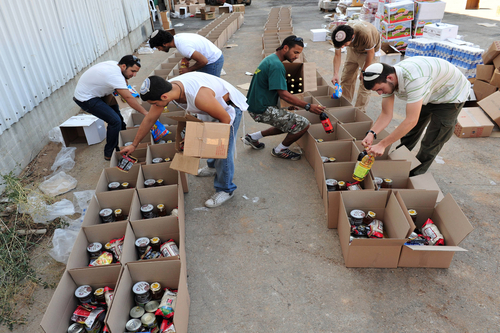Teach your child gratitude: getting the gratitude
attitude
Since even your seven or eight year old can absorb your
attitudes, consider making gratitude a top one.
What’s the most common mistake a parent can make when it comes to teaching
their kids about gratitude?
You don't have to wait until
Thanksgiving to teach your child about being grateful. Unfortunately, we’re often so busy that we can
forget to use everyday teachable moments to help our children be thankful for
all that they have. It’s important that moms and dads make a conscious effort
to make gratitude part of their family culture.
 Recognize gratifying
moments in your own life and then lead by example.
Recognize gratifying
moments in your own life and then lead by example.
Start dinner by sharing a moment where you were grateful in
the day, and then engage the rest of the family to share their moments of
gratitude. For example, being thankful that your old car still runs well or
being grateful that someone helped carry groceries to your door.
 How do you help a 7 to 8 year old understand that?
How do you help a 7 to 8 year old understand that?
Groom your kids to see the
big picture in life – the worldview. This way, they’ll get to see how people
live when they don’t have the things that your kids may have. There are great
photo books and magazines, like National
Geographic Kids, to use as reference; or check for DVDs at your
local library. At this age, kids will start to realize that they have a lot of
opportunities that others don’t.
How do you make that more concrete for them?
 The best way is to get your kids to participate locally. For
instance, offer to volunteer as a family at a local food bank, or donate to a
toy drive. These are great teachable moments to help your children understand
that even if your family doesn’t have many luxuries, there are neighbors who
may have even less. And at this age, kids are naturally empathetic and want to
help others.
The best way is to get your kids to participate locally. For
instance, offer to volunteer as a family at a local food bank, or donate to a
toy drive. These are great teachable moments to help your children understand
that even if your family doesn’t have many luxuries, there are neighbors who
may have even less. And at this age, kids are naturally empathetic and want to
help others.
Remember that teachable moments are experiential. Your
kids won’t learn about gratitude if you wag your finger and nag about the
proverbial starving children in other parts of the world. For example, if they
keep losing their action-hero lunch bag, give them the option to use a regular
plastic bag or use their allowance money to buy a new one. This is what experts
call “gratitude with accountability”. It helps kids value what they have.
Other ways to teach kids the value of things they may take for granted
 Get your kids to participate in deciding what to do with
things they don’t use or clothes that no longer fit. Help them go through their
closet and take out items that they no longer wear. Put them in a bag and let
them help you drop it off at a charity. This way they learn that stuff has
value — and that people are grateful to receive it.
Get your kids to participate in deciding what to do with
things they don’t use or clothes that no longer fit. Help them go through their
closet and take out items that they no longer wear. Put them in a bag and let
them help you drop it off at a charity. This way they learn that stuff has
value — and that people are grateful to receive it.


